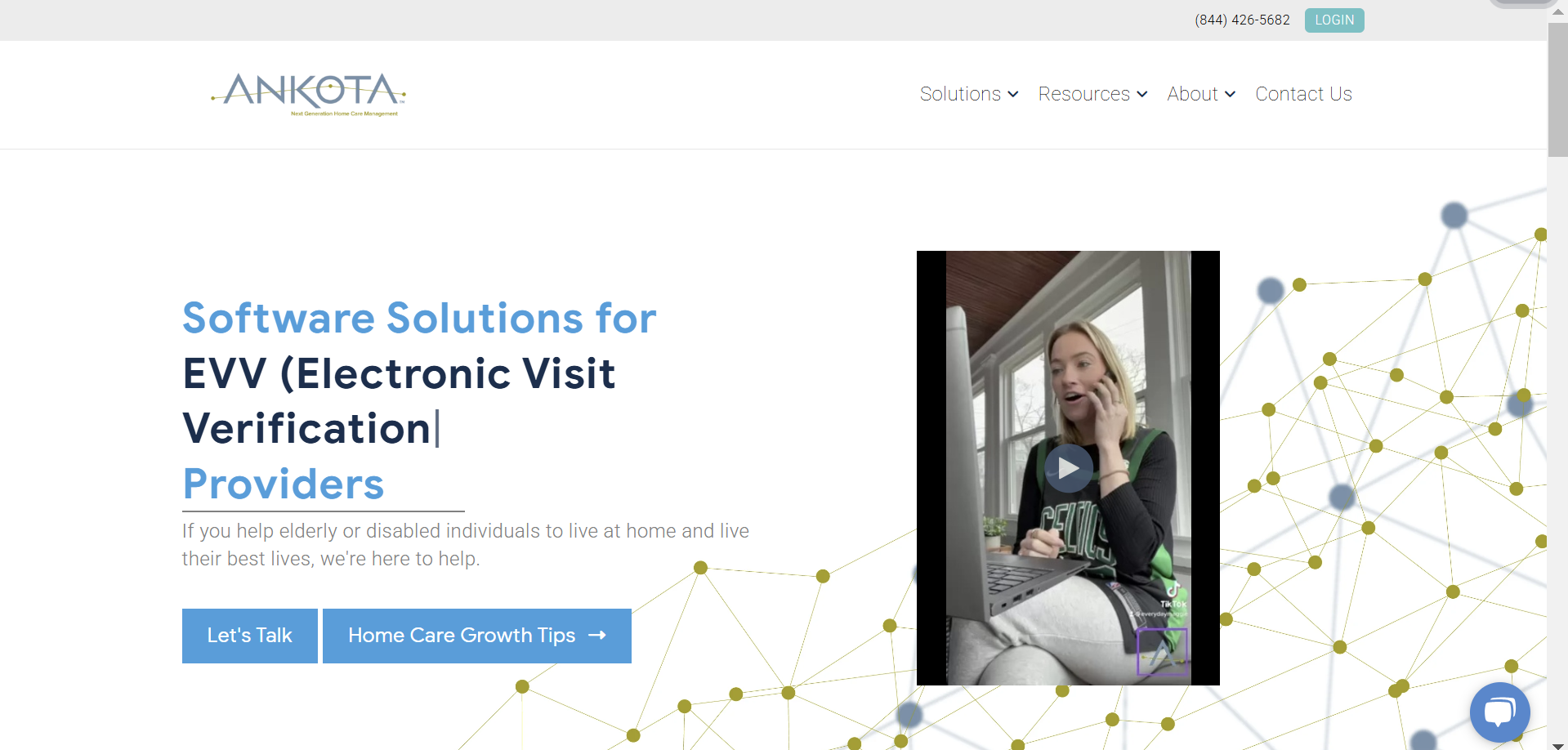Direct Support Professionals (DSPs) provide essential supportive services for people with disabilities to achieve meaningful lives. Their job responsibilities move past primary help because they develop targeted emotional physical, and social assistance for every person's specific needs. DSPs maintain a vital role by building independence along with inclusion while ensuring overall patient wellness for their direct service beneficiaries.
It's important to note that while DSP is the predominant acronym used for disability service workers, it sometimes means Direct Service Provider (as opposed to Direct Service Professional) and there are other similar acronyms like DSW for Direct Service Worker. To learn more about the differences between disability services and home care, read this article.
Community organizations now prefer person-centered care approaches, which has resulted in rising employment opportunities for qualified DSPs. DSPs serve to connect people with disabilities to different levels of help through support systems that aim to assist their daily routines, personal growth, and public participation. A DSP performs duties that extend beyond basic care responsibilities because they help persons achieve maximum success.
The Core Responsibilities of DSPs
A Direct Support Professional serves as the main source of help for people with disabilities to achieve autonomous existence with purpose. Quick assistance with home maintenance tasks alongside hygienic functions food preparation, and moving about the house falls under DSP responsibilities. As part of their essential duties DSPs help clients in a variety of ways to share their needs through communication support.
Having worked with disability service providers throughout the US, I would say that the most important responsibility of the DSPs are as follows:
| Connect with their client |
Serve as a friendly advocate for them |
| Listen to the client |
Understand what the person wants to be able to do as a result of their services
|
| Prepare strategies |
Every person is different in physical ability, cognitive ability, dreams and fears. In order to help a person do something independently that they could never do before might require 10 different strategies
|
| Provide "Active Support" |
Active Support is a technique that engages each participant in choosing and performing their service activities. It is linked to better outcomes.
|
| Celebrate every success |
Realize that change is hard and progress should be celebrated
|
As part of their duties, DSPs dedicate their skills to maintaining both mental health and the social experiences of the people they assist. Commissioned individuals help people engage in local events while they also help with employment training and educational development. As part of their mission DSP professionals create systems that build self-reliance together with resource availability for individual success.
The DSP professional dedicates themselves to protecting the rights and respect of disabled people as a fundamental part of their role. The DSP professional strives to build environments that encourage their customers to experience both dignity and respect. DSPs help their clients access healthcare support and equal job possibilities, as well as fight for improved public accommodation standards.
The Importance of DSPs in Disability Services
Service programs focusing on disability require DSPs to deliver acceptable quality standards and personalized support. DSPs form a connection between disabled people and public life to ensure their participation in ordinary activities and maintain their safety and well-being. The professionals deliver their services across residential homes and community centres together with educational facilities and working environments.
The person-centered approach delivered by DSPs decreases a person's need for institutionalized care settings. People who have disability make up a considerable number who want to stay integrated in their familiar environment instead of staying residentially isolated. Military service technicians enable self-reliance through their help programs, which assist when essential but support people in achieving independent lives.
DSP service impacts multiple stakeholders apart from their direct beneficiaries. The expertise of trained DSPs positively impacts both families and caregivers by offering needed relief services in addition to supplementary support. Society finds support through DSPs who step in to care for people living with disabilities, thus enabling families to balance their attempts at sustainable disability support.

The Skills and Qualifications Required for DSPs
To succeed in this role DSP candidates need technical skills together with compassion and adaptability skills. Specialized training programs prepare DSPs for their role through the delivery of critical knowledge and practice-oriented skills for helping people with disabilities.
DSPs need to demonstrate excellent communication abilities to properly understand the personalized requirements of every single person they serve. The DSP needs problem-solving abilities to address any problems that appear in their daily care responsibilities. Empathy, together with patience, emerges as an essential characteristic for DSPs because they must work directly with people facing barriers in communication and behavioural difficulties.
Medical assistance training is commonly given to DSPs, which covers delivering medications und,erstanding symptoms of distress, and executing emergency procedures. Assistive technologies, along with understanding mobility aids and behavioural support strategies, provide DSPs with more ability to deliver top-quality care.
Challenges Faced by DSPs
The profession provides rewarding work opportunities to DSPs but they confront numerous difficulties in their daily duties. A critical problem in this field is that DSPs number in shortage, which causes both heavier workloads and greater workplace stress for the remaining staff members. The rising demand for disability services exceeds the available pool of trained professionals creating two main issues of retaining workers and enhancing job satisfaction.
DSPs need better compensation together with enhanced career progression options in order to better meet their professional needs. The physical and emotional labour conducted by DSPs in their daily work ethic should be equally reflected by adequate compensation because their skilled dedication requires proper recognition. The public dialogue now aims to enhance policies while boosting appropriations and properly evaluating DSP contributions in healthcare operations and social assistance work.
Both professional duties and workplace connections present difficulties when trying to find equilibrium between them. Constructing close relationships with supported persons creates challenges for DSPs to uphold boundaries while handling professional stress. Multiple educational programs about personal wellness, together with stress management training, need to stay active to protect the health of both providers and their supported clients.
The Future of DSPs in Disability Services
Disability services are implementing personalized and community-based care models resulting in changes to the DSP professional's responsibilities. Digital tools entering disability services infrastructure improve how disability service providers work as they enhance service coordination and improve communication methods along with health tracking capabilities.
Included within this transformation are the changing directions of disability services that will define the modern DSP role. Society has begun to understand that DSPs require policies that will create fair compensation standards, better career progression paths, and workforce longevity assurances. Advocacy will likely lead to better working environments while society understands better the vital role DSPs perform in society.
The Disability Support Profession retains essential importance to guarantee people with disabilities access to their basic rights of care, support, and opportunities. The growing need for excellent disability services calls for a sustained investment in training along with policy improvements and workforce growth to support the profession in the future.
Conclusion
Disability Support Practitioners bring vital support to disability services which creates improved life quality for disabled individuals. The professionals make sure that the people they serve lead lives that include independence together with inclusion and dignity principles. The disability services sector depends fundamentally on the presence of DSPs who make significant contributions to individuals along with their families as well as their entire communities despite encountering professional hurdles.
The rising need for competent DSPs requires enhanced funding for training programs and decent pay levels, together with adequate support systems for their employment. The future development of disability services depends on giving DSP employees the proper respect and funding to carry out their vital mission. The professional responsibility of DSPs becomes essential for people seeking dependable disability services because it enables them to build an inclusive community.
Ankota's mission is to enable the Heroes who keep older and disabled people living at home to focus on care because we take care of the tech. If you need software for home care, EVV, I/DD Services, Adult Day Care centers, or Caregiver Recruiting, please Contact Ankota.

.png)
.png)




.png)
.png)


